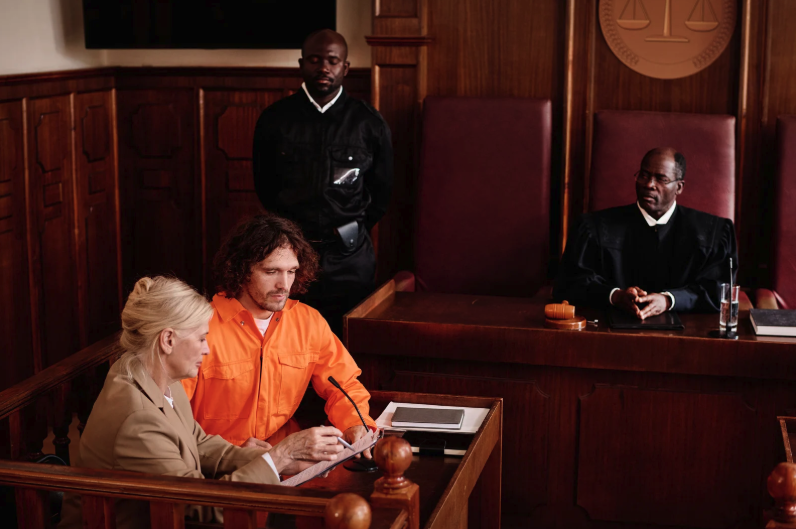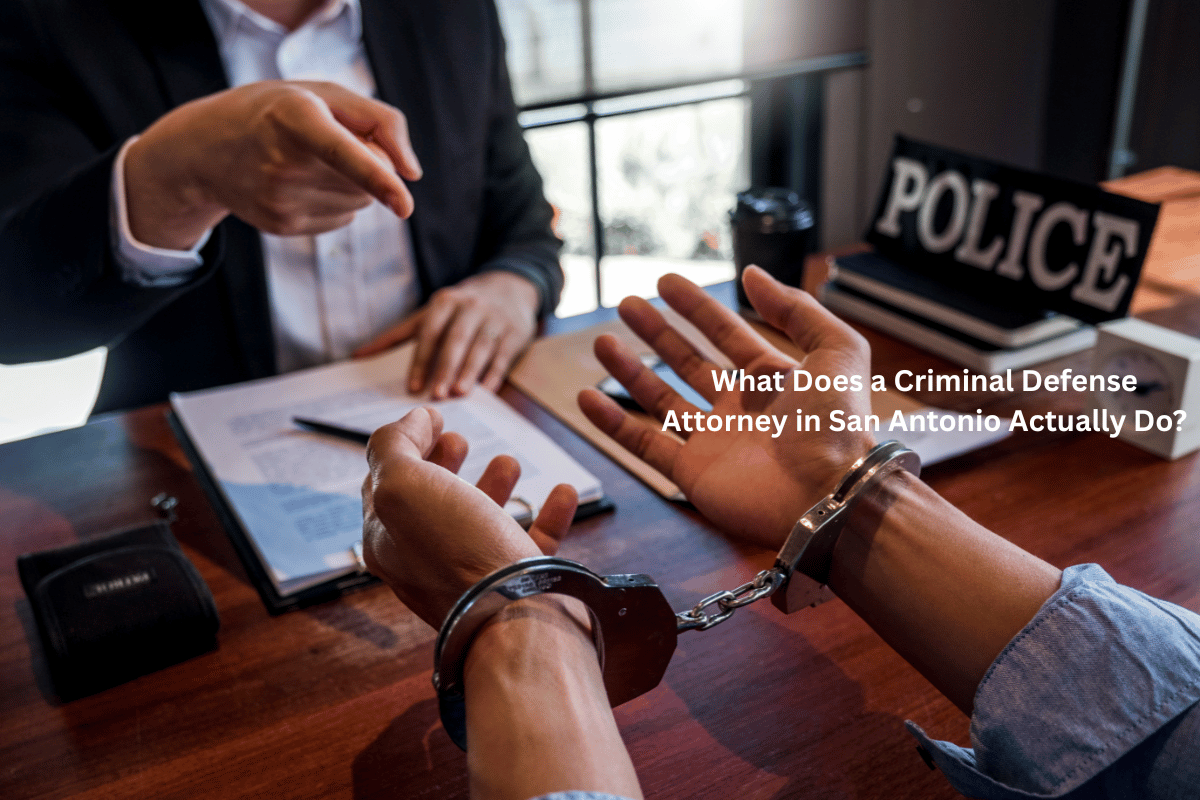What Does a Criminal Defense Attorney in San Antonio Actually Do?
Like any major city, San Antonio has its share of legal troubles. People get arrested daily—for reasons ranging from serious crimes to unfortunate misunderstandings. When that happens, a criminal defense attorney becomes one of the most important people in the room.
Their job isn’t just about proving innocence. It’s about protecting rights, ensuring the legal process is fair, and guiding their clients through one of the most difficult experiences of their lives.
Most people don’t realize how much work goes on behind the scenes. A defense attorney takes on more than just arguing in court—they build the case from the ground up, piece by piece. They know the law and understand the high stakes for the person beside them.
To understand what they do, here are six key responsibilities of a criminal defense attorney in San Antonio.
1. Build the Foundation of the Case
A San Antonio criminal defense attorney starts by looking at every case detail. This is the most important part. It involves reviewing police reports, looking at the evidence, and seeing how the arrest went down.
The goal is to find any mistakes or weaknesses that can be used later. Even something small, like an unclear statement or missing paperwork, can be huge. They also talk to witnesses and gather information that might have been overlooked.
Moreover, criminal defense attorneys don’t accept facts as they are; they examine them and ask the right questions. At this point, they start building a defense strategy that fits the situation. They need to know what happened, how, and why it happened.
Early preparation gives them a better chance of protecting their client throughout the case.
2. Negotiate With Prosecutors
A major part of a criminal defense attorney’s role is working directly with the prosecution to discuss possible outcomes before the case ever reaches trial. In many situations, this means negotiating a plea deal.
The attorney carefully reviews the case’s strengths and weaknesses and then uses that knowledge to speak with the prosecutor. If the evidence is weak or certain procedures were not followed correctly, the attorney may be able to push for reduced charges or a lighter sentence.
These discussions take skill, timing, and knowledge of the law. The goal is to get the best for the client, especially if a trial would be riskier. A good negotiated deal can mean no jail time at all.
However, not every case ends in a deal. A good defense attorney always explores this option to protect the client from unnecessary consequences or long legal battles.
3. Protect Clients’ Rights
One of the most important roles of a criminal defense attorney is protecting the legal rights of the person facing charges. From the moment of arrest, law enforcement must follow certain rules. If those rules are ignored, such as making an unlawful search or failing to read someone’s rights, those actions can seriously affect the case outcome.
A defense attorney reviews how the investigation was handled and looks for violations of proper procedure. If a mistake is made, the attorney can challenge the use of that evidence in court.
Protecting a client’s rights is not just about fairness—it is a basic part of the justice system. The attorney ensures the process is followed correctly from beginning to end.
This careful attention can prevent unfair treatment and ensure that the client receives a defense based on facts, not on errors made by law enforcement.

4. Prepare Defendants for What’s Ahead
A criminal case can be overwhelming for anyone who has never been through the legal system. Considering that, a defense attorney helps prepare the client for every step ahead, including explaining the charges, the possible outcomes, and how the court process works.
The attorney also answers questions and ensures the client understands what to expect. Being informed helps reduce confusion and allows the client to make better decisions.
The attorney also clearly advises on how to act both in and out of court. What the client says, does, or posts publicly can affect the case. A skilled attorney will guide the client on what to avoid and how to stay focused during a stressful time.
Preparing a client also means helping them feel confident when facing a judge or jury. When someone knows what to expect and understands their role, they are more likely to stay calm and follow the attorney’s guidance throughout the case.
5. Represent Clients in Court
When the gavel falls and the trial begins, the defense attorney becomes the face, voice, and shield for the accused. Every word matters. Every objection counts. And every second of silence carries weight. This isn’t a performance—it’s persuasion backed by preparation.
In court, the defense attorney questions witnesses, challenges evidence, and argues to convince not to entertain. They pick jurors who will listen, not just nod politely. They cross-examine the prosecution’s witnesses looking for cracks, contradictions, or convenient memory lapses. And when they speak to the jury, they do it clearly and purposefully.
Courtroom representation isn’t just about knowing the law; it’s about reading the room, anticipating the prosecution’s every move, and steering the case to the best possible outcome. It’s tactical. It’s exhausting. And that’s where it all comes down to.
6. Handle the Aftermath—No Matter the Verdict
Whether the case ends in acquittal, a plea, or conviction, the attorney’s work doesn’t stop when the judge says, “Next case.” There’s always clean up. Sometimes it’s filing for expungement, erasing the charge from public record so a mistake doesn’t follow someone forever. Other times it’s preparing for appeals, digging back into transcripts, and trial records to find grounds for a do-over.
And let’s not forget sentencing. If someone’s found guilty, the attorney advocates for leniency. That might mean presenting mitigating circumstances, character witnesses, or evidence of rehabilitation. In other words, they humanize the client in a process that often reduces people to case numbers.
Even after the courtroom empties and everyone else moves on, the defense attorney is the only one still in the client’s corner. They’re the cleanup crew, the damage control, and sometimes the only one still calling the client by their name instead of their charge.
Bottom Line
Being a criminal defense attorney in San Antonio isn’t glamorous. It’s a tough job that requires sharp instincts, deep knowledge, and an unshakeable sense of justice. These attorneys aren’t just helping people avoid prison; they’re fighting to ensure the system doesn’t eat people and spit them out without a second thought.
If you ever find yourself on the wrong end of an accusation, don’t waste time rehearsing your story or Googling how to plead in court. You need someone who can cut through the noise, challenge every assumption, and stand between you and the full weight of the state.







